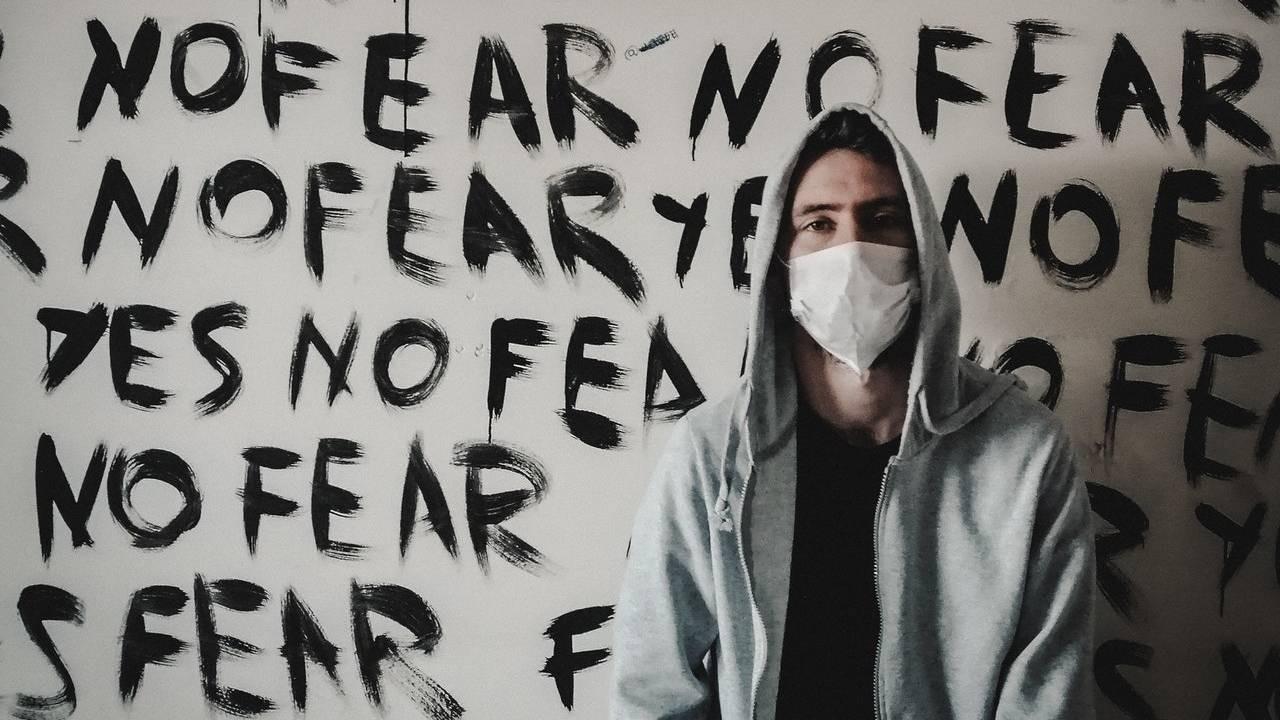Staying Calm during COVID
Welcome to our Wellbeing during COVID-19 resources blog. Each of our blogs links directly to one of our 6 rules for keeping calm during the COVID crisis.
The use of fear for good, and when it goes bad

Fear is a hugely useful asset in the management of public safety.
To caveat this blog, this is not a political piece. Rather, it is an example of leadership and the lessons we can learn from Dominic Cummings outings and the handling of that news this week.
This week, I heard the use of fear within government leadership during the pandemic described as “it (fear) must wear an iron fist with a velvet glove”.
This week, it feels like the velvet gloves were accessorised with a hooded cape. ‘Rule of fear’ has now become ‘fear and loathing in lockdown Britain’.
As a democratic society, the value of our freedom is possibly one of our most important attributes. When we were instructed to stay home on the evening of the 23rd March, we accepted that this restriction on our liberty was for our collective safety.
We had no option but to put our trust in our leaders. And to their surprise, we the public followed the guidance with much greater compliance than they, the government, expected. We...
How to stop time feeling like an energy thief.

With the lack of end-game to our current circumstance, people are tiring and finding even everyday tasks a struggle.
If we can’t be upbeat (and let’s be honest, even outside of COVID that’s a hard mood to muster on a Monday morning!), how can we at least stay focused and motivated through the next day, week, month?
Unbidden thoughts can rob you of your focus and, if allowed to fester, can bring your mood down and heighten your anxiety.
Thought: I want to see my Mum...it’s been 8 weeks....I need some comfort from her and to offer her comfort...will I ever get to do that again in person?
Suddenly, the ability to pull that slide deck together or give your attention to a Zoom call has vanished.
A recent article on the learnings a son took from his Navy SEAL Dad shared some great insights on how the strict training programme they receive offers some useful tools we can apply now.
The Four Habits he shares are (in essence): Get a good sleep routine and wake early. Stay active. The imp...
Re-entry to work; the opportunity for positive change.

The joy some of us have experienced being away from our usual work environments has brought into sharp focus how well we can do our jobs when environmental stressors are removed.
For those of us who have not been able to go to work, the thought of returning to our places of work may be causing anxiety.
We know our work environments will have to adapt to allow for social distancing, but we are unclear on how this will impact the way we work.
Companies will be more aware than ever that our lives no longer run on typically similar schedules. Staggering start and end times will undoubtedly become commonplace to account for social distancing on transport networks and staggered school programmes for working parents.
Long before Lockdown, it was evident that the traditional work models were outdated and causing high amounts of stress and burn out. This article explores in more depth, the fallacy of the ‘ideal worker’ and how the lockdown offers a real opportunity for fundamental change ...
When you don't the know answers.

The answer is 42.
According to Douglas Adams 'Hitchhiker's Guide to the Galaxy' (one of my favourite books) this is the ultimate answer to the questions of life, the universe and everything.
Some answers right now can feel just as ambiguous. We're learning more about how to manage this crisis everyday.
Not having the answers is ok, nobody does.
Everything right now, is truly a 'what if'. What if the second wave comes in September? What if the insurance company fights us for payout? What if the car doesn't pass it's MOT? What if my child falls behind in their education?
Uncertainty triggers fear, and this great HBR article reminds us that, as managers and leaders our job is to project confidence and strength.
Give your 'what if's' a time limit in your mind. It can be a useful exercise to explore potential outcomes of disaster scenarios to help us feel mentally prepared with a plan of action.
However, giving these hypothetical scenarios too much bandwidth and they become vivid an...
Plan your anxiety for better sleep

Managing your sleep can start to become a cycle of anxiety in itself. If you haven’t slept well you can feel anxious about how this will impact on your busy day ahead. Will you have enough energy for that important video conference? Will you make silly mistakes? Will you lose patience too quickly with your children, partner or a delivery driver’s failed attempt ( I was most definitely in, you just did not wait for me to answer - sound familiar?)?
The cycle can start up again at night. “I hope I sleep better tonight, what if I don’t, will this go on forever, I hate insomnia!”
Conversely, if you find yourself sleeping too much, getting started in the day can seem like an enormous challenge which can set your attitude for the day with a sense of burden.
You can’t force your body and brain into better sleep. But you can plan for better sleep.
Our Thrive Planner is a great tool to help you map out your new daily and weekly commitments, requirements and challenges. By planning your dome...
How to stop social media and news consumption adding to your anxiety

It's very easy to constantly reflex to your phone at the moment. Whether for news updates, checking in on friends and families or (as we're all guilty of) mindlessly scrolling social media.
The immediacy and absorption these apps within our devices provide, makes it very easy to spend far more time on them than we realise. Often the content they offer is far from enlightening or enriching to your everyday life to warrant the time spent on them.
The old adage 'bad news sells', is fuelling an echo-chamber of anxiety inducing stories and self-certified 'experts' to wade in with their tuppence worth.
So how can you break the cycle of circling back to your phone and its persistent notification alerts? This week's You Are Not A Frog podcast with Rachel and Tiny Habits coach, Dr Katherine Hickman offers some great advice to help you better manage your media hits.
Manage Your Anxiety, Make Your Bed

Whether your routine is confining you to your home, or your adapted work setting and style is hard to adjust to, it can easily feel like you’re not achieving anything.
Creating some sense of order in the chaos - whether that’s an overcrowded workspace or a lego filled living room, can seem overwhelming.
So what can you do, what can you manage each day to make sure that you create a sense of achievement as well as peace?
Make your bed each day.
It sounds overly simple, but this routine gesture has a powerful effect on setting your brain at the start of the day with a sense of accomplishment and offers encouragement to set about your next task. It also offers comfort at the end of the day that you have the opportunity to rest and try again.
This advice is powerfully delivered in a speech titled ‘If you want to change the world, start by making your bed’, to graduates at The University of Texas by Admiral William H McRaven.
Manage your anxiety in 5-4-3-2-1

With spring now actively upon us, you may well have noticed more of the changing season around you - the reduction in road and pedestrian traffic has allowed the sounds of spring to become more apparent.
I was reminded this week of a fantastic coping technique for moments of anxiety. This is called the 5-4-3-2-1 technique. By focusing on each of your senses at a time and becoming aware of your immediate environment, you can reduce your heart rate, breathing and bring your mind and body back to calm rapidly.
In my outdoor space, practising this technique I realised quite how much of spring was around me and how much joy it brings.
Proactively manage your anxiety with this breathing exercise

Anxiety can sneak up on us, and it's not always practical or possible to take a deep time out.
Here's a great quick fix; try this breathing exercise to immediately help you in those moments of rising anxiety.
Not only is it useful during the day to create a moment of pause, it has helped me fall asleep on several occasions when even the lavender oil hasn’t worked.
Anyone who has practised yoga will testify the power of mastery of breath leading to mastery of mind. Fortunately, you don’t need to stand on your head to benefit from this exercise.

